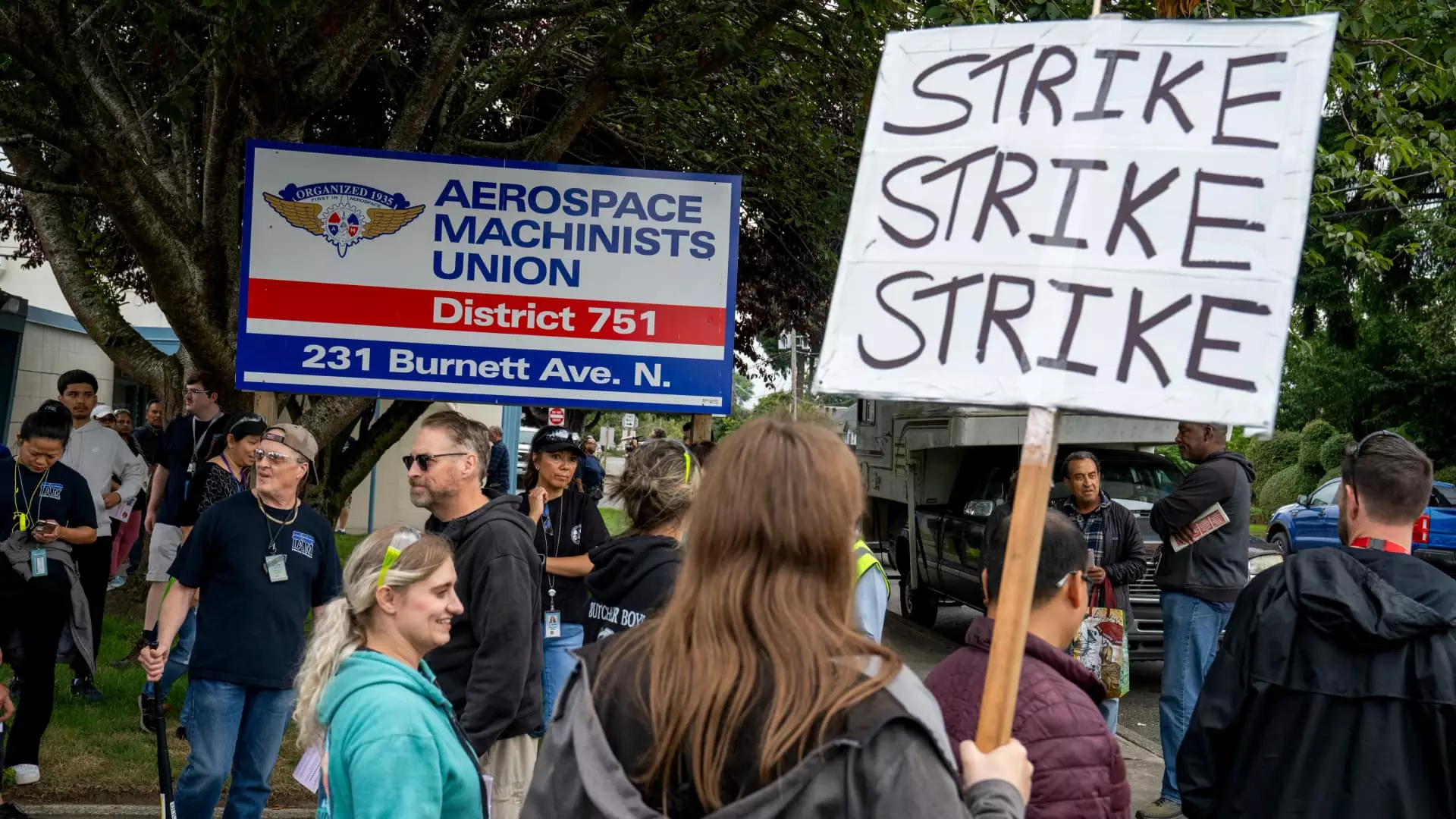On the precipice of a significant strike, over 30,000 Boeing employees have collectively decided to halt production, a move signifying much more than just a disagreement over a contract. The overwhelming rejection—94.6% against a proposed labor agreement—was a decisive act by workers primarily located in Seattle and Oregon, revealing profound dissatisfaction with both the terms offered and the treatment received from management. This situation escalated quickly, with a 96% vote in favor of a strike, highlighting the growing unrest that employees feel towards an employer that they believe has not adequately responded to their needs.
Reflecting on the current landscape, this strike reflects an urgent need for responsive contract negotiations, rather than the stagnation that many employees feel they have endured. IAM District 751 President Jon Holden’s declaration of an “unfair labor practice strike” speaks volumes about the workers’ sentiments, pointing to issues of discriminatory practices and a deeply-rooted sense of distrust. The implications of these dynamics cannot be underestimated, as they reveal systemic problems within Boeing’s organizational culture that could hinder its recovery efforts.
At the heart of this impasse lies the proposed contract, which, despite containing significant wage increases of 25%, failed to address the workers’ demands fully, primarily driven by rising living costs—a factor many had hoped would be more adequately covered. The contrast between the company’s promises and the expectations of its employees underscores a critical mismatch. Boeing’s leadership, under CEO Stephanie Pope, argued that the recent proposal was the best contract offered historically. However, this sentiment may not resonate with a workforce feeling underappreciated and overburdened.
The absence of a substantive agreement, coupled with an acknowledgment that Boeing has shifted its production operations to non-union contexts, has fostered distrust among machinists. Workers are seeking not only monetary compensation but also a greater sense of job security and acknowledgment in their roles. The failure to deliver a comprehensive contract suggests a larger bureaucratic disconnect that could impose long-lasting repercussions on the workforce’s morale and the company’s bottom line.
Boeing’s recent history is marred by crises that have jeopardized both its reputation and financial stability. The competition to rebuild production capacity while simultaneously ensuring quality has been daunting. The call for a strike, placed in the context of ongoing fiscal challenges—reportedly $8 billion in losses this year—adds complexity to an already fragile situation. Analysts estimate that the potential ongoing strike could result in substantial financial losses for Boeing, with projections suggesting a $1.5 billion cash hit over just a 30-day period, a staggering consequence of unresolved labor issues.
The threat of destabilized supply chains raises questions about the broader impacts on the aerospace industry. As Boeing works to rectify manufacturing flaws, it appears that labor unrest could exacerbate supply and labor shortages that the company has been navigating. A strike not only halts production but sends ripple effects throughout the operational landscape, potentially affecting suppliers and related industries.
In light of these developments, it is imperative that Boeing’s leadership re-evaluate their approach to labor relations and contract negotiations. A focus on meaningful dialogue rather than tactics perceived as coercive could bridge the gap between management and employees. Restoring faith in a once-stalwart manufacturer requires not only a responsiveness to compensation issues but a genuine commitment to workplace equity and morale.
The rejection of the proposed contract and the impending strike are merely symptoms of deeper issues within Boeing’s operational framework. For the company to emerge from this crisis, a proactive stance on engaging with its workforce and addressing grievances sincerely is crucial. Only then can Boeing hope to transform this troubling chapter into one of recovery and renewal, aligning its operational priorities with the well-being of its most crucial asset: its employees.


Leave a Reply